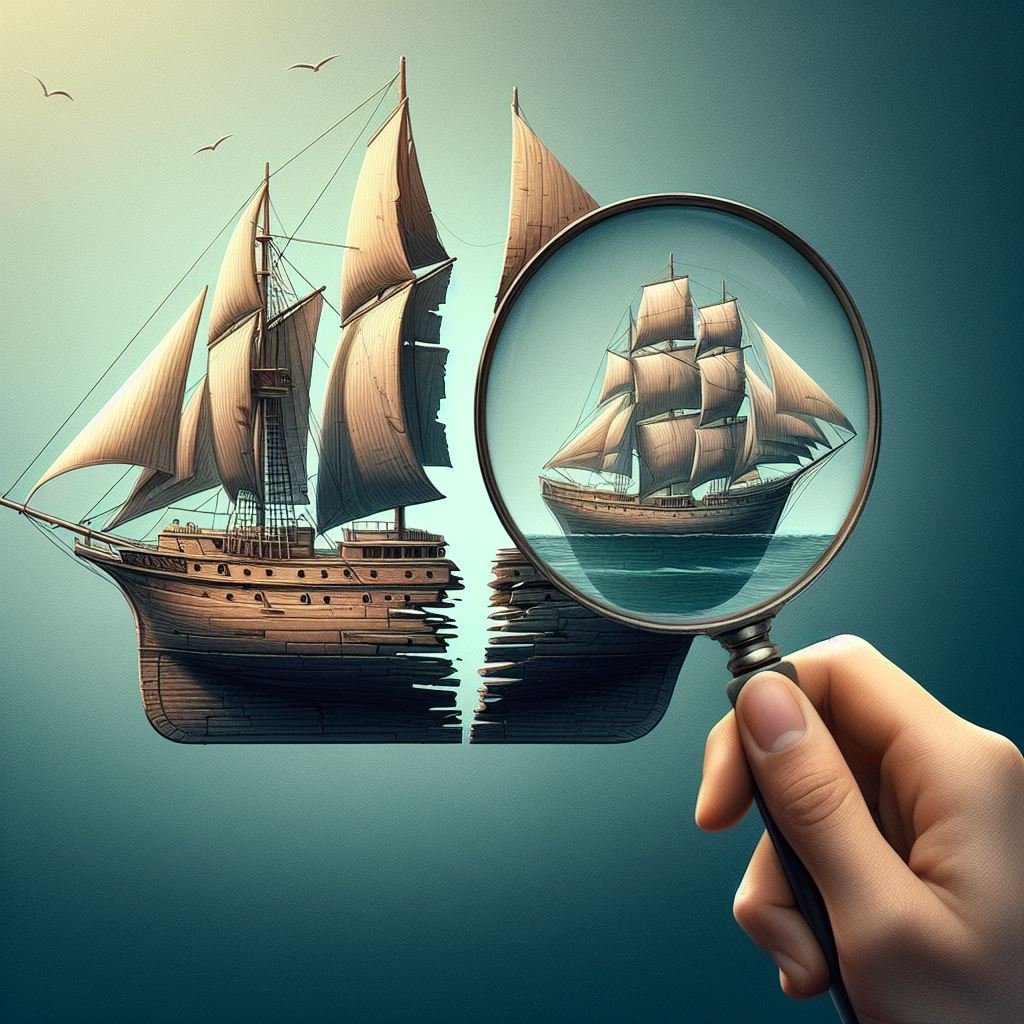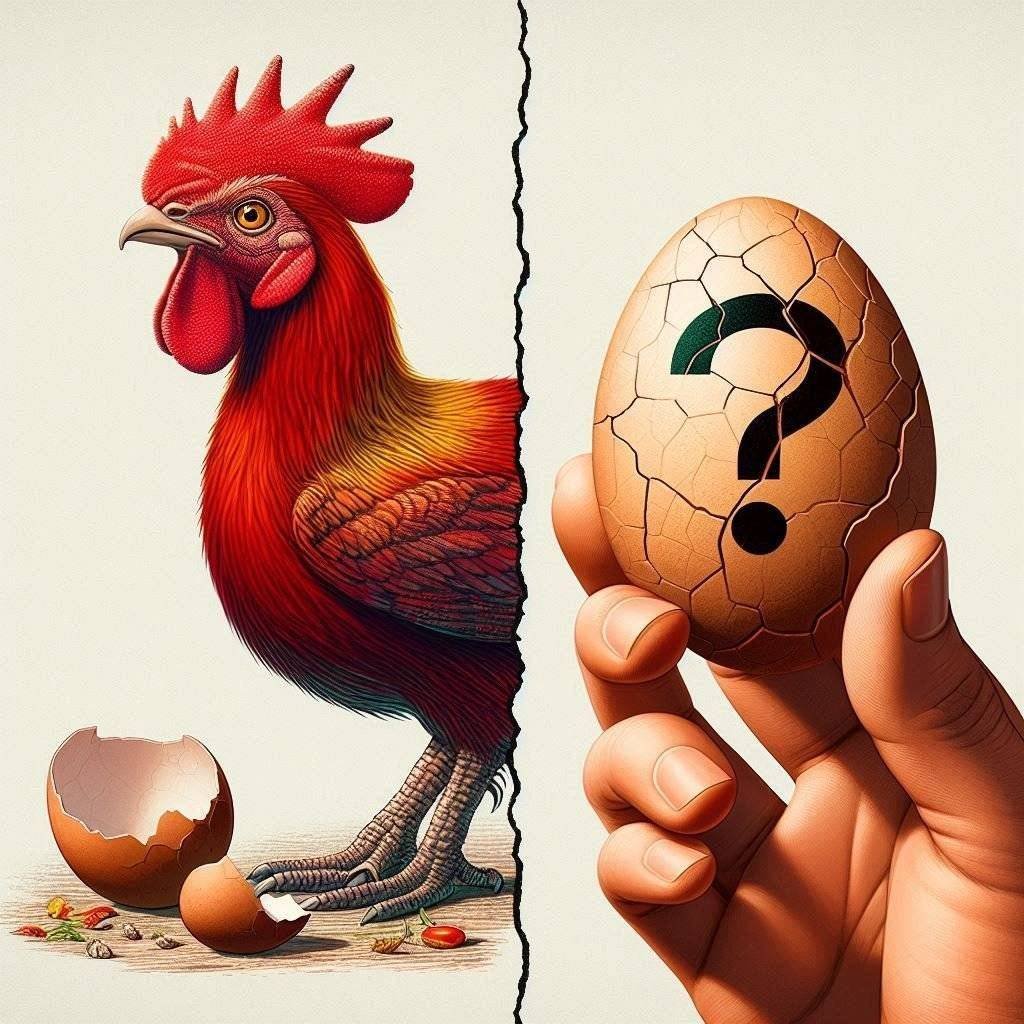Imagine a majestic ship, the pride of its owner, Theseus, a mythical Greek hero. Over time, the relentless sea takes its toll, and each worn plank is meticulously replaced. Years later, not a single original piece remains. Is this vessel still the “Ship of Theseus”? This is the heart of the Ship of Theseus paradox, a philosophical thought experiment that has captivated thinkers for centuries.
The Paradox Unfurled:
The paradox, attributed to Plutarch in his “Life of Theseus,” presents a fascinating dilemma:
- Premise 1: The Ship of Theseus begins as a collection of specific planks.
- Scenario 1: Plank-by-Pl plank Replacement: Over time, each individual plank is replaced as it wears out with a new one.
- Question 1: After all the planks have been replaced, is the ship still the same ship as the original?
- Scenario 2: The Original Planks Reassembled: Imagine the removed planks are carefully preserved and used to build a new ship.
- Question 2: Which ship is the true Ship of Theseus – the one with the original form but entirely new materials, or the one made from the original planks but with a new form?
The Intrigue of the Paradox:
The core of the paradox lies in the question of identity over time. Is an object defined solely by its material components, or do its form and purpose also play a role? The Ship of Theseus forces us to confront the complexities of change and the nature of identity for both objects and ourselves.
Exploring the Philosophical Depths:
Different philosophical schools offer contrasting perspectives on the paradox:
- Materialism: This view emphasizes the importance of material components. According to this perspective, the ship with the original form but new planks ceases to be the Ship of Theseus once all the original materials are gone.
- Formalism: This school focuses on the object’s form and function. From this perspective, as long as the ship retains its original design and purpose, it remains the Ship of Theseus regardless of material changes.
Beyond Material and Form: The Ship of Theseus and Us
The paradox extends beyond the realm of ships. Consider a human body – our cells constantly regenerate, yet we remain the same person. This similarity highlights the limitations of strict materialism and formalism in defining identity.
A Spectrum of Identity:
Perhaps the Ship of Theseus isn’t an either-or situation, but rather a spectrum. Over time, an object accumulates changes – repairs, modifications, and wear and tear – that contribute to its history and character.
- Ship A: Completely replaced planks but retains original form – a strong connection to the original through design and purpose.
- Ship B: Original planks but a new form – a connection to the original through its material past.
- Original Ship: Over time, it loses its original material identity but retains a historical connection to its past iterations.
The Paradox as a Tool for Exploration:
The Ship of Theseus isn’t meant to offer a definitive answer. Instead, it serves as a powerful tool for exploring:
- The Relationship Between Material and Form: How do these factors contribute to an object’s identity? Is one more important than the other?
- The Concept of Change: How does gradual change affect an object’s identity? At what point does an object become something entirely different?
- The Paradox of Personal Identity: Like the Ship of Theseus, our bodies and minds constantly change. What makes us the same person over time?
Modern Applications: From Ships to Smartphones
The Ship of Theseus paradox finds relevance in contemporary contexts:
- Ship Restoration: Historic ships often undergo extensive restoration, replacing a significant portion of their material. When does a restored ship lose its historical identity?
- Technology and Repair: Modern smartphones are modular, with replaceable components. At what point does a phone with all-new parts cease to be the same phone?
Beyond the Philosophical Debate:
The Ship of Theseus paradox serves as a reminder that the world, and our place within it, is a complex tapestry of change and continuity. It encourages us to question our assumptions and explore the nuances of identity, both for objects and ourselves. So, the next time you encounter a familiar object that has undergone significant change, ponder the Ship of Theseus – a timeless paradox that invites us on a voyage of philosophical discovery.



